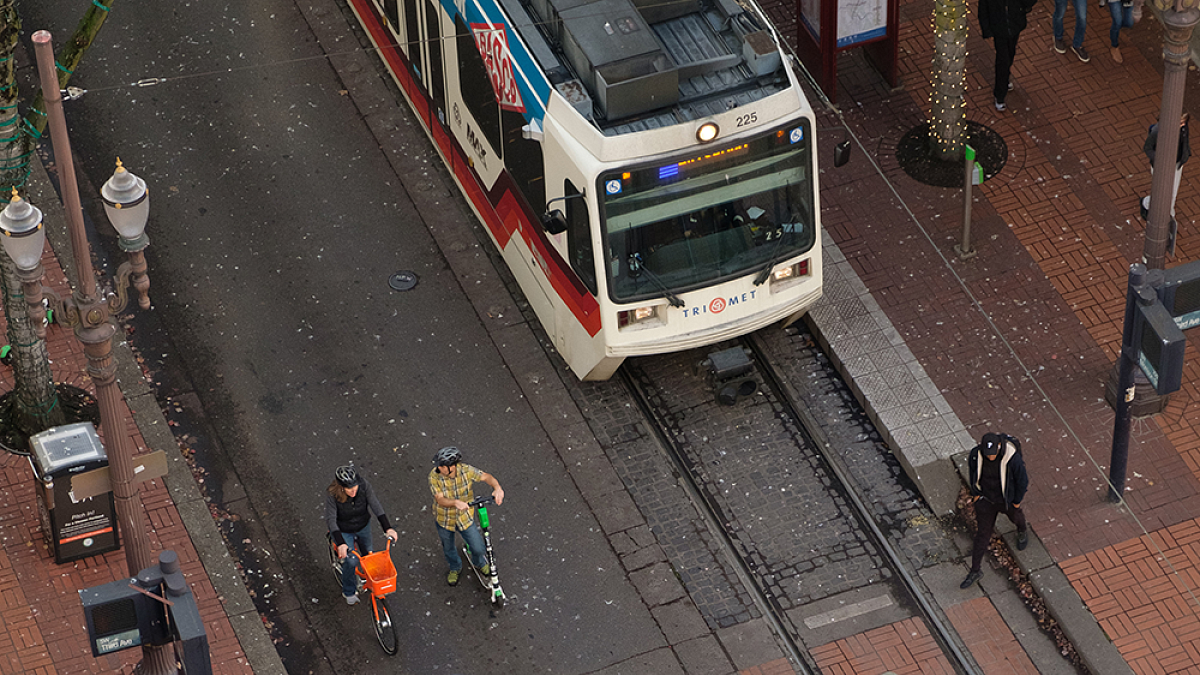A new online database that examines emerging technologies and their effects on cities is now available through the University of Oregon’s Urbanism Next Center.
NEXUS, an acronym for Navigating Emerging Technologies and Urban Spaces, launched Jan. 14 in Washington, D.C. at an event associated with the Transportation Resource Board Conference, one of the largest transportation conferences in the world.
Created by the UO’s Urbanism Next Center in partnership with NUMO Alliance, NEXUS is a comprehensive, vetted source of information that explores the potential effects of innovations such as new mobility, autonomous vehicles and the rise of e-commerce. Going beyond the technologies themselves, NEXUS sheds light on possible long-term and compounding influences of these technologies on cities and communities.
The one-stop, online resource provides a toolkit to approach important topics and assists decision-makers and government leaders with information to create new policies to manage and regulate emerging trends.
“Changes are coming fast, and new technologies are forcing cities to rapidly evolve,” said UO professor and Urbanism Next director Nico Larco. “When faced with the challenges and opportunities that these new technologies pose, the NEXUS helps cities and decision-makers understand how to frame conversations and provides a trustworthy, fact-based platform to gather all of the information they need to tackle these issues.”
NEXUS is organized by five categories that include technology, such as autonomous vehicles, e-commerce and micromobility; potential impacts, such as building design, real estate, land use, transportation and urban design; broad implications, such as economy, equity, environment, and health and safety; what to do, including design and governance; and resources, such as tools, pilots, fact sheets and slides. Each topic includes examples of how to address issues, new developments, related topics and additional resources.
While the site acts as a primary source for understanding the effects of emerging technologies and what can be done about them, it also includes current news and developments and information on relevant events, webinars and workshops, including information about the Urbanism Next conference in Portland May 13-15 and in Rotterdam June 24-26.
Over the last three years, Urbanism Next has collaborated with professors from the UO and subject matter experts from the public and private sectors to curate and collect hundreds of reports, articles and other materials for NEXUS. In addition to the current content, Urbanism Next will continue to create new materials for the database in a variety of mediums. As new topics and technologies emerge, NEXUS will grow and new resources will be added almost daily.
—By Rachael Nelson, University Communications


